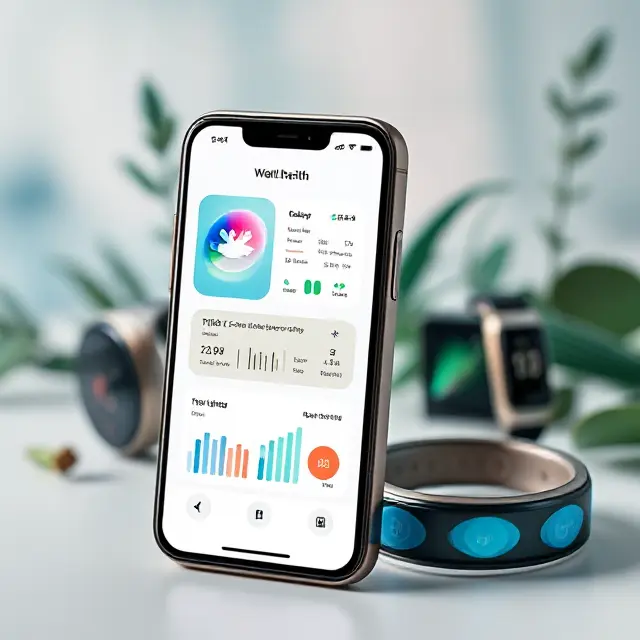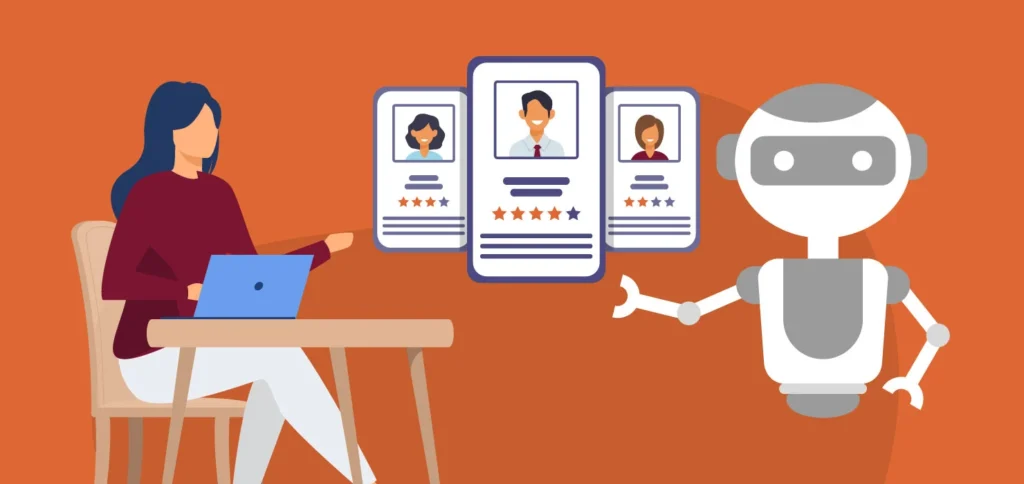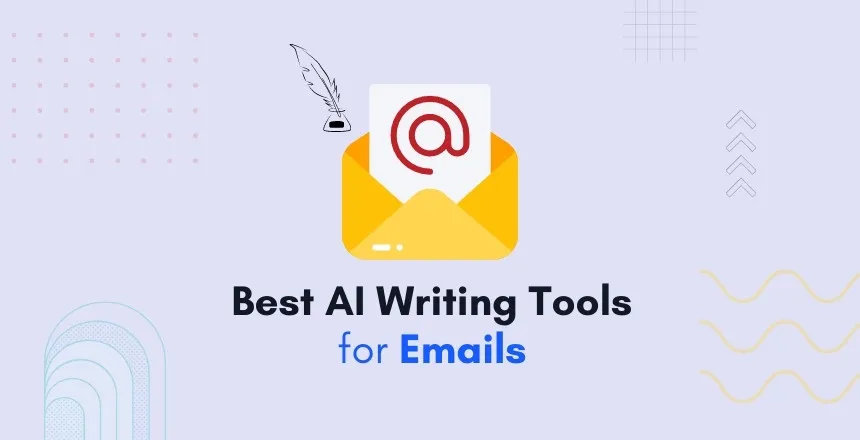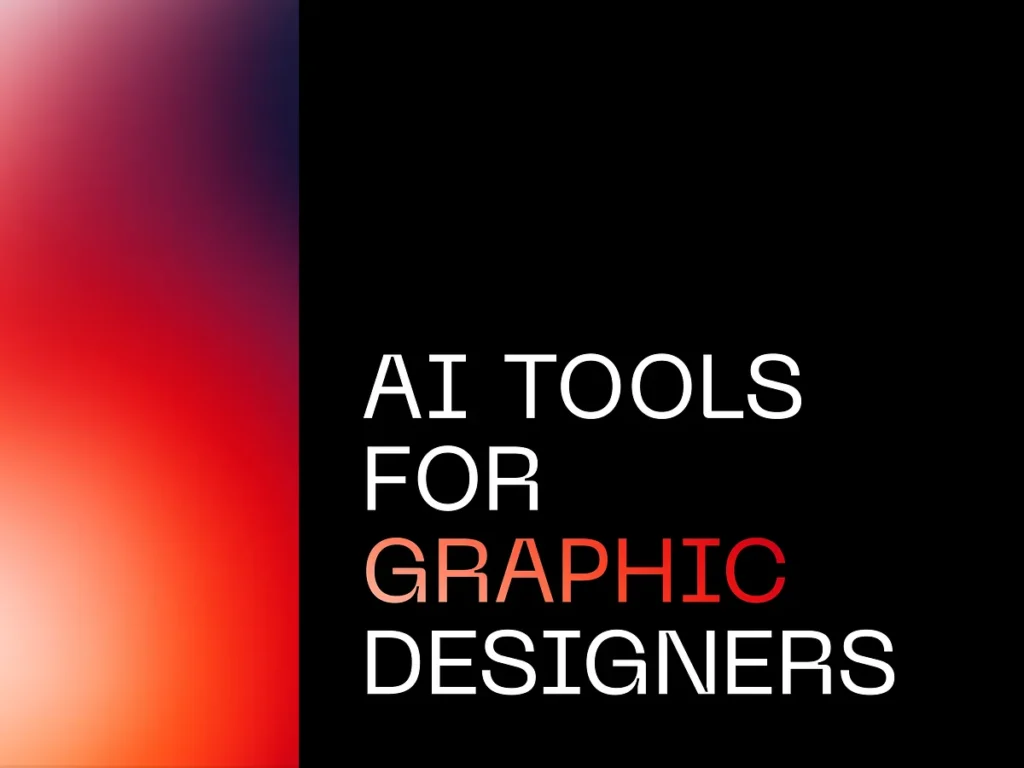Wellbeing AI Tool
Historically, caring for our wellbeing was often complex. People found it difficult to keep track of their mental, emotional and physical well-being. Without the right tools, it could be hard to know where to start or what to change. Many found it difficult to understand how their everyday habits were contributing to their wellbeing, with concerns like even basic goal-setting or tracking feeling insurmountable.
But with the introduction of wellbeing AI tools, this process has become much simpler. These tools are designed to assist individuals in tracking various health indicators, providing a more straightforward approach to managing targets and analyzing progress. These wellbeing AI tools help individuals manage their stress, improve their habits, and live a healthy life by making informed decisions about their well-being. So here are some of the tools out there today that can help assist us on our path to a healthier lifestyle.
Table of Contents

Explore Top Wellbeing AI Tool
What Are Wellbeing AI Tools?
Wellbeing AI tools are a software platform and applications that help people to keep or improve their health. These tools may involve the analysis of data associated with physical activity, nutrition, sleep, mental health and/or stress levels. The goal of these Wellbeing AI tools is to give you insight and realistic advice tailored to your data results. And through detection of patterns and correction users are able to build a path towards well-being in a more organized manner.
Like apps on smartphones, wearables such as fitness trackers or even virtual assistants, these Wellbeing AI tools help us. With wellbeing AI tools, people can monitor their health from home, set wellness goals, track their progress, and receive customized advice to make positive changes to their lives.
From Ancient Tools to Modern Tools: The Exceptional Transition
Previously, in order to track and do something about their wellbeing people had to use tried-and-true methods. This may have involved writing in a journal by hand, checking in with a health care professional on a regular basis or taking their cues from how they felt on a given day. Although useful, these methods were imprecise and easy to miss patterns or relevant information. And there were no tools that provided a bird-eye, easy-to-understand overview of all realms of health.
Today, wellbeing AI tools changed the episode. And with nothing more than a smartphone app or a wearable device, anyone can track every aspect of their wellbeing — sleep patterns, physical activity, heart rate and even mood. These tools assist people in decision-making utilizing data and trends, which is enhancing health management and individualization.
Key Features of Wellbeing AI Tools
Wellbeing AI tools encompass a broad range of tools which differ from each other based on the type of tool and their objective. But there are a few characteristics that many wellbeing AI tools have in common:
- These Wellbeing AI tools track health metrics including steps walked, calories burned, sleep quality and stress levels. It uses data to help users understand their habits and the way they affect their health.
- Personalized Insights: Wellbeing AI tools offer personalized feedback based on the data they have collected. Be it better sleep habits or stress management, personal feedback is provided to users according to their needs.
- Goal Setting: Many wellbeing AItools enable users to set health-conscious goals. These can be measured in a variety of ways, such as steps walked, minutes spent in a meditative state or weight maintenance goals. The tool also offers progress updates that can be used to encourage the user to stay on track.
- Integration: Wellbeing AI tools often work seamlessly with other apps and devices. For example, they can connect to fitness trackers or even apps that track what someone eats, and get a fuller picture of a person’s well-being.
- Real-time Monitoring: Certain wellbeing AI tools offer real-time monitoring, notifying users if something seems off—whether it’s a decline in activity levels or disturbed sleep cycles.
- There are also wellbeing AI tools of this kind that incorporate a lot of mental health. These might include mood trackers, guided meditations or stress reduction exercises.
Advantages of Using Wellbeing AI Tools
The benefits of wellbeing AI tools are obvious. These tools increase everything from personal health to well-being accessibility. Here are some of the major advantages:
- Better Health Tracking: Wellbeing AIs keep track of the data you input over time, creating a much more accurate picture of your health than what we can get from periodic doctor’s visits. Henry had been using data collected passively and mussel based, wearables, and health shifts substantially.
- Personalized advice: Unlike tips from the Internet, wellbeing AI tools provide insights tailored to your unique habits and goals. Make the advice relevant and actionable.
- More Motivation: Setting goals and receiving regular updates can encourage individuals to continue to stay healthy. This adds something to the journey, allowing users to feel their progress with the status updates on their shots.
- Stress Relief: Wellbeing and mental health AI tools can also help to eliminate stress in users by offering relaxation techniques and meditation techniques, as well as mindfulness exercises.
- Convenience: With wellbeing AI tools, you don’t need to schedule an appointment with a professional to receive advice. They are very accessible for those with a tight schedule, as the tools are available whenever they are needed.
Best Wellbeing AI Tools in the world :
- Reclaim. ai : Reclaim. ai is kind of a hybrid app between scheduling and productivity optimization across your tasks and habits to really help you find the sweet spot to maintain both at work and out of work .
- Headspace : Through hundreds of meditations and focus music, Headspace is like a wise friend guiding you with the app.
- Meal Mind : Meal Mind is an AI-powered meal planning tool that generates personalized meal plans based on your dietary preferences and restrictions. It can generate interactive shopping lists and develop recipes tailored to your own wellness goals.
How do you actually use wellbeing AI tools?
On the one hand, it is possible to say there are tools such as wellbeing AI tools that you can use anywhere in life linked to health and management, making them very versatile. Some hands-on examples of how these tools can be used include:
- Wellbeing AI tools can also help track fitness activities such as walking, running, and cycling. This allows users to establish goals, feed in performance data, and monitor their progression toward improving fitness over time.
- Sleep Tracking: Wellbeing AI tools track sleep patterns and provide tips on how to improve sleep quality, so users wake up fresh and energetic.
- Nutrition Advice: Many health AI tools also track the food you eat, giving tips on how to eat better. Some can suggest meal plans, assist with calorie counting or provide tips for balanced nutrition.
- Stress & Mood Management : Certain wellbeing AI tools are specific to stress and emotional wellbeing management. Mood tracking, guided breathing exercises, relaxation techniques—all of these can help users to settle and center.
- Chronic Disease Management: Wellbeing AI tools can be crucial for individuals with chronic illnesses. They allow users to monitor their health proactively, track symptoms and gain insights on how best to manage their condition.
- Mental health Support: Apps tracking mental health are becoming more popular. They assist users in exploring emotional patterns and give in-the-moment help for anxiety, depression, or other mental health challenges.
Drivers Behind the Adoption of Wellbeing AI Tools
A number of factors are driving the rising interest in wellbeing AI tools:
- Growing Health Awareness: As individuals are becoming more aware about the need to live a healthy life, they are looking for a solution from technology. Tools that fall under the header of wellbeing AI enable easier monitoring and optimization of one’s health.
- Technological Advancements: The rapid expansion of technology, particularly those involving wearable devices and smartphones, has made it feasible for the wellbeing AI tools to be not only accessible but also effective.
- Personalised: People want individualised advice that meets their needs. Due to their personalized health suggestions, wellbeing AI tools are preferred among individuals for healthcare management.
- User-Friendly: Most wellbeing AI tools are user-friendly and require minimal effort to get started. The users can use this without any fuss as one can set up an account in seconds and get started tracking their health.
- Affordable: Wellbeing AI tools can be significantly cheaper when compared to regular visits to a doctor or therapy sessions, which makes them appealing to those who want help, but on a shoestring budget.
What Does The Future Look Like For Wellbeing AI Tools
Will the wellbeing AI tools of the future be bright? Because technology evolves, and we can expect these tools to only become more relevant and accessible in the future. In the future, wellbeing AI tools could improve in the following areas:
- Integration with Health Systems: Wellbeing AI these tools may become even more integrated into our medical systems, allowing users to share information with doctors for more holistic care.
- Improved Mental Health Support: As mental health becomes a bigger issue and topic of discussion, wellbeing AI tools may provide even more personalized support for mental health, including virtual therapy or counseling
- Hyper-Personalized Support: As this field of AI grows, wellbeing devices will become increasingly capable of delivering tailored recommendations based on more accurate data to ensure users receive the most pertinent advice possible.
- Enhanced Functionality: Wellbeing AI tools may be able to include other types of features, such as genetic analysis or advanced assessment of mood, providing an even more comprehensive picture of an individual’s wellbeing in the future.
- Improved Wearables and Sensors: As wearable technology continues to improve, wellbeing AI tools can potentially become even more accurate through real-time health data.
Conclusion
The Wellbeing AI tools are revolutionizing self-care. Wellness trackers, or well-tracking apps, offer a simple way to monitor and make positive changes to our physical, emotional and mental well-being. By providing personalized advice, tracking progress, and encouraging better health habits, these tools help us keep our wellbeing in check. Given that technology continues to evolve, wellbeing AI tools would only become more powerful; helping people lead healthy, happy lives. Wellbeing AI tools can help anyone who is looking to simply eat better and exercise more, all of which can do wonders for your physical and mental health.
Related Categories
Explore 1000+ AI Tools in related categories

Get Exclusive AI Tips
Receive the same AI tips that helped me to make $37,605 in just two weeks!





